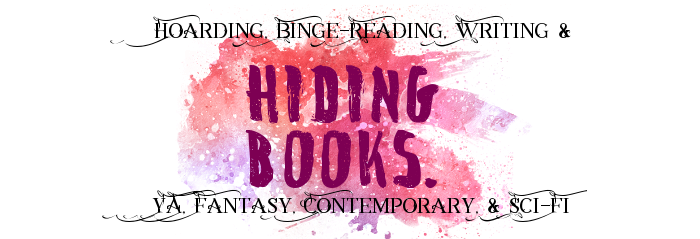Conversations: Diversity and Mental Health
✱ Are there any particular diverse books you read more and why?
|
When I settled down to think about today's topic, I first thought of all the LGBTQ books I've only recently started reading. But then I'd just finished All the Bright Places, and I was wanting to talk about that without reviewing it because it hit me so hard emotionally that I don't think I can. So BAM, today we're taking this chance to talk about mental health and illness in books, and in life. I focus on depression here, because that's the devil I know best.
Diverse Topics in Literature
So firstly: why do we talk about this so much? Why is it so important to have diversity in the books we read?
For me, this is about equality, and the equal representation of different kinds of people in literature. We read to sympathise with characters, because we understand or want to understand what they're going through. I think that's especially important when it comes to things like different cultural backgrounds, mental health, sexual orientation - things that are sometimes difficult to discuss, because we're afraid people might not understand, or because they're not in our situation and really can't understand. Bottom line: everyone deserves to read about characters they can relate to.
Mental Health and Social Stigma
“It's my experience that people are a lot more sympathetic if they can see you hurting, and for the millionth time in my life I wish for measles or smallpox or some other easily understood disease just to make it easier on me and also on them.”
- Felix Finch in Jennifer Niven's All the Bright Places
So many people still think of mental illness as something you can 'get over.' It upsets me - because we're not admitting that people need help. We're instead making them feel more guilty for being ill. The thing is that guilt is already there, and we have no right to make it worse for anyone. Because this social stigma still persists, I think it's important that we discuss these topics, bring them up in literature, incite conversation, and try to make it more accepted to talk about our battles with mental illness.
Medication
"Diego kept saying he felt like he should be able to control it. Like - he wanted to reason his way out of it, Because it's your own mind, right? But of course it doesn't work that way. Sometimes you just need medicine."- Ellie in Emery Lord's When We Collided
This is a topic that seems to divide people - even those who may desperately be in need of medication. I'm always interested to see how it is handled in books. It takes a lot of courage to start taking medication for a mental illness, and continuing to take them can be even harder. Which is why no one should make us feel like we're supposed to be 'stronger than that.' Because some people do argue against these, and some sufferers (even in books) talk about how they one day decided that they had had enough of suffering depression and being stuck in their bed. They didn't need meds, they were stronger than the rest of us. This kind of talk really upsets me because for a lot of people medication can be the thing that slowly helps them to feel better. There is no shame in that, and no one should make us feel like taking meds is a bad thing.
So What Can We Do?
“I can tell you that “Just cheer up” is almost universally looked at as the most unhelpful depression cure ever. It’s pretty much the equivalent of telling someone who just had their legs amputated to “just walk it off.” Some people don’t understand that for a lot of us, mental illness is a severe chemical imbalance rather just having “a case of the Mondays.” Those same well-meaning people will tell me that I’m keeping myself from recovering because I really “just need to cheer up and smile.” That’s when I consider chopping off their arms and then blaming them for not picking up their severed arms so they can take them to the hospital to get reattached.”
- Jenny Lawson, Furiously Happy: A Funny Book About Horrible Things
Personally: books help - books that talk about mental illness, and books that don't even consider the topic. But speaking as someone who fights depression every day, what we need is people to be understanding. I realise how hard it is to deal with a friend's or a family member's mental illness, I really do. We can lash out at the people we love, we can seem uncaring, sometimes we may not react to what you're saying at all. None of it is because of you. It's because something awful is happening inside our brains, and we can't control it.
Compassion, open dialogue (as hard as it is for everyone involved), and kindness are the things that bring some light into our worlds. And sometimes all you need is knowing someone is there and cares.
Okay, so this is such an important topic to me, as you may have noticed. Chip in, let me know what you think, ask questions if you feel like it! Also: talking about such personal topics, yay or nay? And finally: what diverse books do you read?












0 comments